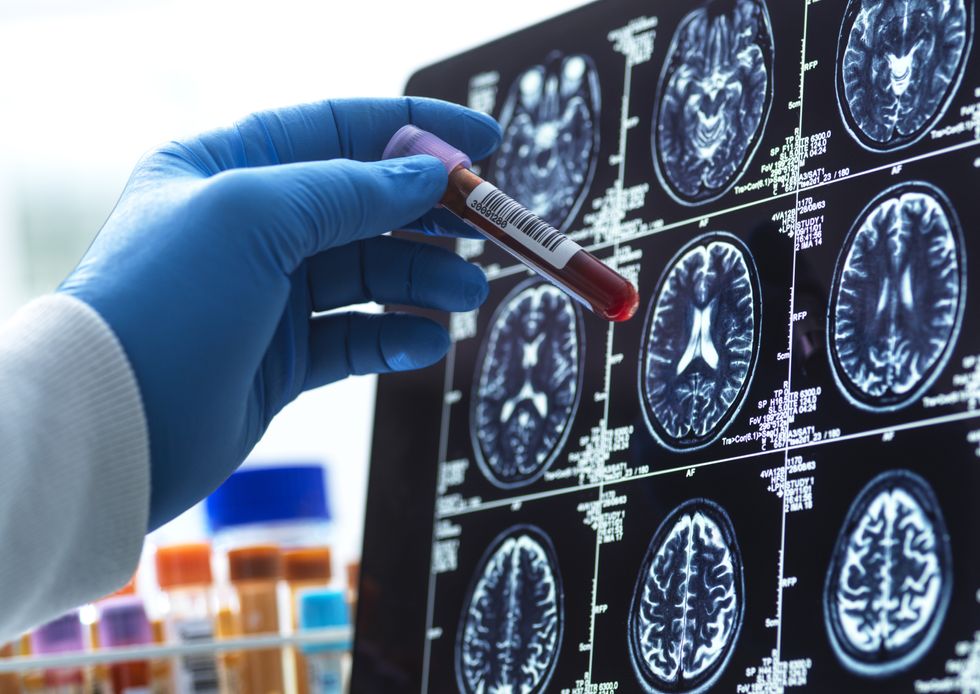Dementia: Neurologists identify common blood test to predict chance of developing severe Alzheimer's

WATCH NOW - 'Direct association': 5 lifestyle habits make the brain 'resilient' against dementia, says new study
|GB News
The latest research was unveiled at a conference in Helsinki, inspiring new hope in the quest to battle the neurological disease
Don't Miss
Most Read
A groundbreaking blood test could identify which patients with mild cognitive impairment will experience rapid progression to severe Alzheimer's disease, according to new research unveiled today.
The latest discovery could transform how doctors identify vulnerable patients who would benefit most from targeted therapies and inclusion in clinical trials.
The simple test measures insulin resistance using the triglyceride-glucose index, with higher scores indicating a four-fold faster cognitive decline over three years.
The findings, presented at the European Academy of Neurology Congress in Helsinki, has offered a fresh new wave of hope to families seeking clarity about the progression of cognitive decline in their loved ones.

The simple test measures insulin resistance
|GETTY
During the study, researchers from the University of Brescia in Italy examined 315 non-diabetic patients with cognitive deficits, including 200 diagnosed with Alzheimer's disease.
The team assessed insulin resistance through blood tests measuring the triglyceride-glucose (TyG) index in all participants.
Patients with mild cognitive impairment caused by Alzheimer's, those with the highest TyG scores experienced cognitive decline four times faster than those with lower scores during the three-year study period, the findings revealed.
The research also established that elevated TyG levels were linked to blood-brain barrier disruption and cardiovascular risk factors. However, the scientists found no connection between high TyG scores and other neurodegenerative diseases.
LATEST DEVELOPMENTS
Scientists believe insulin resistance accelerates Alzheimer's progression through several mechanisms, including impaired glucose uptake in the brain, increased inflammation, and disruption of the blood-brain barrier.
The condition may also promote the accumulation of amyloid, a toxic protein found in the brains of Alzheimer's patients.
Lead researcher Dr Bianca Gumina said: "Once mild cognitive impairment is diagnosed, families always ask how fast it will progress."

The simple test is highly accessible
|GETTY
"Our data shows that a simple metabolic marker available in every hospital laboratory can help identify more vulnerable subjects who may be suitable candidates for targeted therapy or specific intervention strategies."
The accessibility of this test, which requires only standard blood work available in any hospital, has made it particularly promising for the future of widespread screening.
Currently, there are more than 900,000 in the UK estimated to have dementia, the Alzheimer's Society claims, and around two out of three cases are Alzheimer's.










